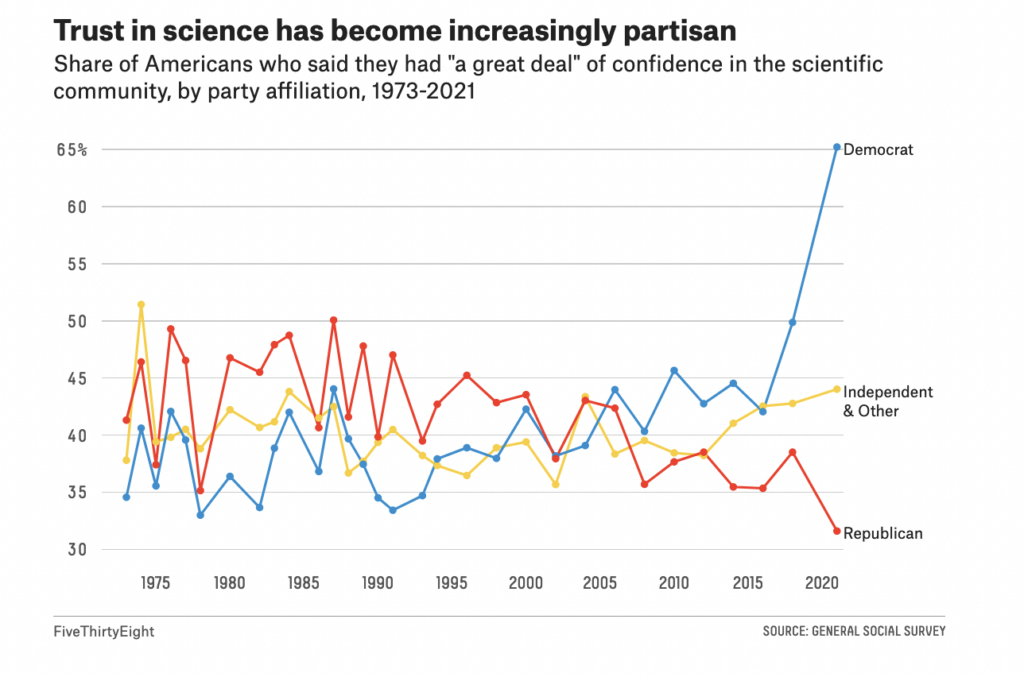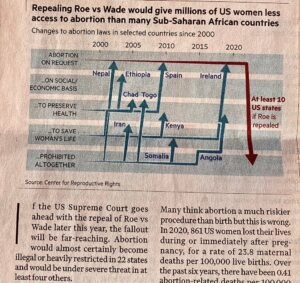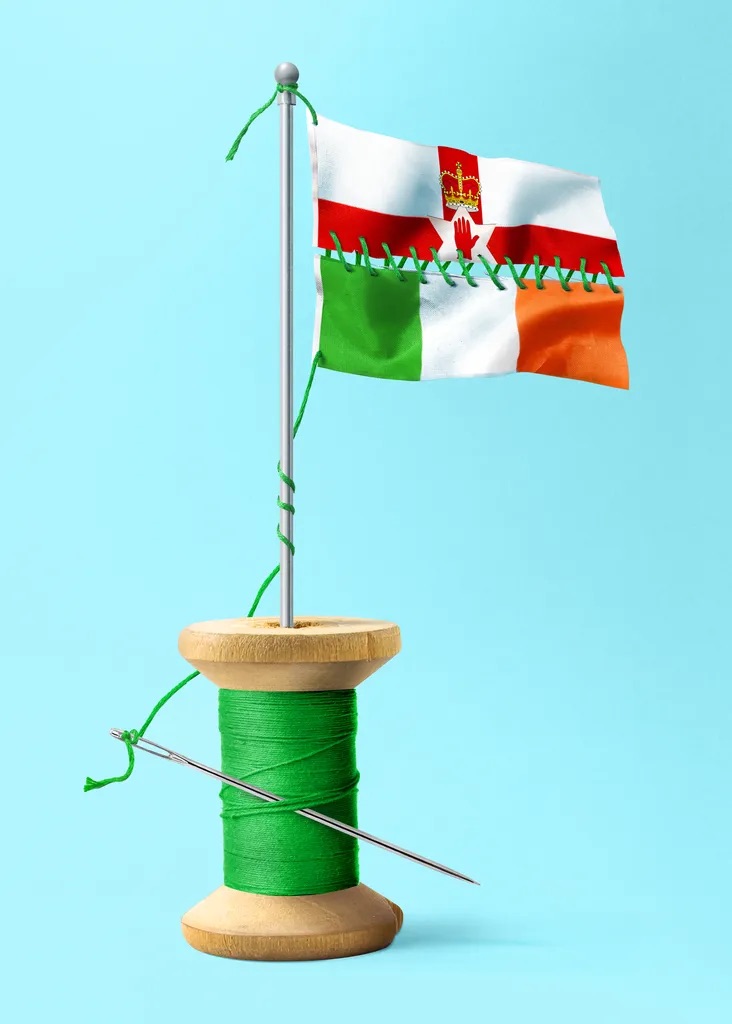If you’re superstitious this would not be a good day to walk under ladders.
Cross Words
My wife and I are cruciverbalists in the same sense that we are ornithologists. That is to say, we like watching birds, but often have trouble identifying them. Same with crosswords. Every weekday we do the Irish Times’s cryptic crossword, and sometimes we even manage to finish it. And (as often happens) when we finally realise that the solution to a clue which has eluded us for hours turns out to be obvious, the thudding noise you hear is the sound of one of us banging his or her head on the nearest available wall.
So why do we do it? Because we enjoy it — honestly. And it provides regular confirmation that as a couple we are more than the sum of our parts. I am an inveterate guesser, while she is a logician who refuses to accept my guess unless she can reverse-engineer the logic behind the solution. The only other thing that I bring to the party is extensive knowledge of disreputable slang of which she, as a well-brought-up girl who has led a sheltered life, is ignorant.
The nice thing about the Irish Times crossword is that the setter has a blog, in which the logic of the day’s solutions is explained after 10pm on the day of publication.
On April 30 Paul O’Doherty, the genial sadist (codename ‘Crossheir’) who has been tormenting us for the last decade, hung up his thesaurus — and penned a lovely reflective farewell which includes some stirring thoughts.
“To go back to the beginning”, he writes,
I can’t say I was an avid crossword doer when I started this job, although I had been setting crosswords for other publications since the early 2000s. I was, however, intrigued by the history of crosswords and the various conspiracy theories that revolved around them, particularly during the second World War. For instance, Dieppe was the answer to a crossword clue in The Telegraph two days before the Dieppe raid in August 1942. MI5 laughed it off as a fluke.
The British newspaper was also responsible for a number of suspicious solutions appearing in its crossword in the weeks up to D-Day: Juno, Gold, Utah, Sword, Omaha (Allied invasion beaches); Mulberry (D-Day portable harbour); Neptune (codename of Normandy landings); and incredibly Overlord (D-Day itself). What the general public didn’t know was that a copy of the Overlord plan had recently blown out of a window of military HQ at Norfolk House.
Not surprisingly, suspicion fell on The Telegraph setter Leonard Dawe, a headmaster at a school close to where US and Canadian troops were bivouacked. It transpired that Dawe had gotten them from school children when he asked them to suggest unusual words for his crossword. Little ears, how are you?
Then there was the time The Times setter Adrian Bell was investigated by MI5 days after the double agent George Blake escaped from Wormwood Scrubs gaol – a car had been waiting in Artillery Lane for him. Bell had unwittingly included the following words in his daily crossword: gaol, rungate (a synonym for runaway) and artillery. And of course, British war-time code-breaking HQ Bletchley Park was always on the lookout for crossword doers – people with “twisted brains” to break the Enigma codes, for instance. As for myself, this week’s crosswords contain solutions that refer to … oh, I’d better not say!
You might ask what has it been like producing 178 clues a week over six days, every week, along with the Christmas Crossword and the odd speciality for a decade? Sometimes the clues come easy, on other occasions it takes hours, tinkering with nouns noticing they should be verbs, occasionally realising that a word is more American than is palatable and having to discard or reword.
After a while, the faithful crossword indicators take on a life of their own: anagram, deletion, reversal, homophone, heads, ends, tail, containment, local, repetition and archaic. They’re a bit like Sartre’s crabs after a touch of mescaline. They follow me in the streets, into my office, into my social life. Occasionally, they wake me up in the middle of the night poking me Shakespeare-like “mumbling of wicked charms conjuring the moon to stand auspicious mistress” or just telling me “hey Dumbo that anagram indicator needs changing”. Lads, it’s been a blast – I’ll miss you the most!
Lovely stuff.
My appalling profreading
Which brings me to something that keeps me awake at night: my terrible proof-reading. For reasons that escape me, but which can largely by explained by bad planning on my part, I am perpetually busy on academic and other pursuits. (At the beginning of the pandemic, for example, I co-founded a new research centre in Cambridge.) This means that my blog is invariably put together at the end of a long day. It’s usually the last thing I do before retiring (to bed, that is). And that means that I often miss glaring errors in my rush to press ‘Publish’.
Yesterday, for example, I wrote that Apple had “called time” on its landmark product, the “AirPod”, when of course I meant the iPod. And a few day’s earlier, introducing the transcript of an interesting interview with Thomas Piketty, I wrote “If, like me, you’re pessimistic about the ability of our democracies to arrest the shocking growth in equality in our societies, then this interview with Thomas Piketty is a must-read.” When of course I meant to say ‘the shocking growth in inequality.” And before that, I wrote about the splendid blog produced by the American historian “Heather Cox Robinson” when of course I meant Heather Cox Richardson. And so on.
This kind of nonsense would not happen if I were to employ a proper proof-reader. But then I would have to pay her or his salary, which in turn would mean that I had — like Dominic Cummings, for example — to charge readers for the privilege of reading me. Which would be embarrassing because I might wind up with no readers at all. So you see the problem. It would be a case where the cure would be worse than the disease.
I can (and do) easily correct these excrescences on the online version once some kind reader has pointed them out at 7:02 am, but once I’ve pressed ‘send’ on this edition the error is set in virtual stone. Sigh.
Quote of the Day
“Right through our national life we have got to fight against the notion that a half-witted public schoolboy is better for command than an intelligent mechanic.”
Thanks to Sheila Hayman for reminding me of it.
Musical alternative to the morning’s radio news
Richard Strauss | Till Eulenspiegel’s Merry Pranks op. 28 | Cristian Măcelaru | WDR Symphony Orchestra
Link
Long Read of the Day
Medieval Scholars Spar on a Modern Battlefield: Twitter
Lovely piece by Jennifer Schuessler.
Medieval Twitter can be a noisy and fractious place, where scholars post articles, memes and, not infrequently, fierce blasts at each other.
But over the past week, things turned hotter than a pot of boiling oil, as a dispute over a spiked book review spiraled into a conflagration involving charges and countercharges of racism, bullying and deception.
It started when Mary Rambaran-Olm, a literary scholar who focuses on race and early medieval England, accused editors at The Los Angeles Review of Books of “torpedoing” a strongly negative review she had written of “The Bright Ages: A New History of Medieval Europe” because of their friendship with the fellow white scholars who wrote it. As the online furor grew, one of the editors posted a fierce rebuttal, accusing her of misrepresenting the situation, and saying the publication had killed the review because she refused to accept edits.
By the end of this week, some of the protagonists had either locked or deleted their Twitter accounts, as rubbernecks outside the profession started sharing screen shots and joking about the latest circular firing squad on academic Twitter.
Do read on.
My commonplace booklet
How migrants of the 1947 partition introduced Delhi to the celebrated culinary tradition – Tandoor. Nice Twitter thread.
This Blog is also available as a daily email. If you think that might suit you better, why not subscribe? One email a day, Monday through Friday, delivered to your inbox. It’s free, and you can always unsubscribe if you conclude your inbox is full enough already!














